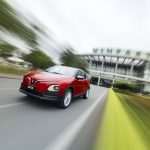During the Covid-19 pandemic, car prices in the U.S. have been continuously rising, causing dissatisfaction among consumers. Now, with car manufacturers producing enough vehicles to meet customer demand, prices have stabilized and consumer sentiment is improving.
According to J.D. Power, a research company, price and supply are the two biggest factors affecting customer satisfaction in the U.S. market. This is the result of J.D. Power’s study on U.S. customer satisfaction index in 2023.
In 2022, the average customer satisfaction index in the U.S. was 786 out of 1000. This year, it has increased to 793 out of 1000.
“Compared to the past 3 years, customers are now more satisfied with the choices they see at dealerships nationwide“, said Chris Sutton, Vice President of Retail Automotive at J.D. Power. “An increase in supply means that customers are paying less than the manufacturer’s suggested retail price for a new vehicle“.
However, this does not mean that car prices in the U.S. have returned to pre-Covid-19 levels. As a result, customer satisfaction in the U.S. has not yet returned to the level it was 3 years ago.
According to the latest research by J.D. Power, in the mainstream segment, the brand that has the highest customer satisfaction in 2023 is Buick with a score of 824. This is the second year in a row that a subsidiary brand of General Motors has topped the mainstream car segment in terms of customer satisfaction. The next two positions are also held by American domestic brands, GMC (821 points) and Chevrolet (812 points). The remaining two brands in the top 5 are Mitsubishi (812 points) and Subaru (808 points).
Popular mainstream car brands such as Nissan, Mazda, Toyota, Honda, Hyundai, and Kia have relatively low customer satisfaction scores. Nissan ranks 9th with 799 points, while Mazda is in 11th place with 793 points. Both Toyota, Honda, Hyundai, and Kia have lower customer satisfaction scores than the average for the mainstream segment. Among them, Kia ranks last with 766 points.
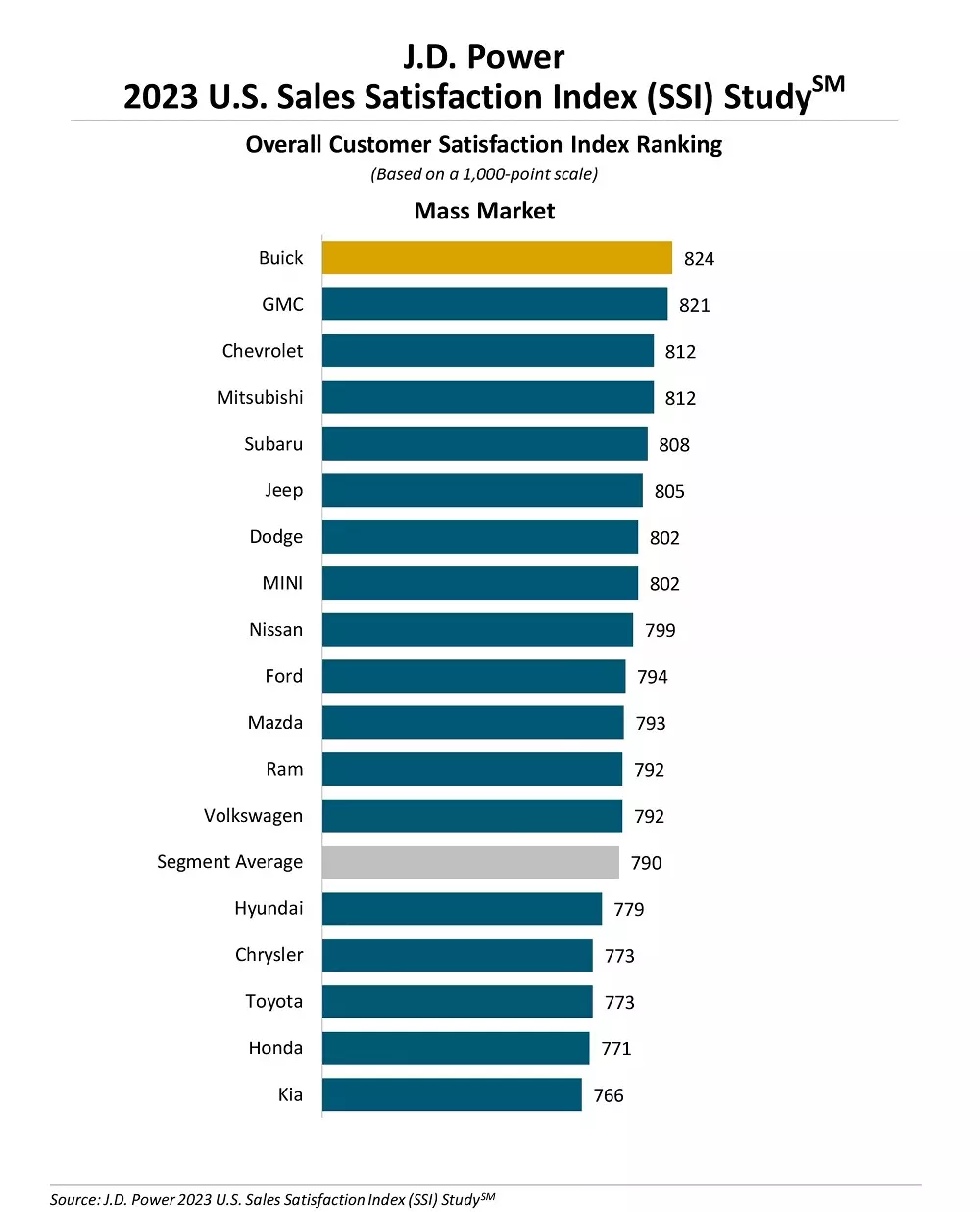
Customer satisfaction index for mainstream car brands
In the luxury segment, the brand that has the highest customer satisfaction is Porsche. The German luxury brand scored 840 out of 1000. The brand that comes right behind is Infiniti with 832 points. The third position in the luxury car segment belongs to Alfa Romeo with 824 points.
Famous luxury car brands such as Mercedes-Benz, BMW, Audi, and Lexus all have relatively low rankings. Mercedes-Benz ranks 8th with 816 points, lower than Lincoln, Volvo, Jaguar, and Cadillac. BMW ranks 11th with 813 points, equal to the average score for the luxury segment. Both Lexus and Audi have lower customer satisfaction scores than the average for the luxury segment, achieving 808 and 807 points, respectively.
Genesis, a subsidiary brand of Hyundai Group, ranks last in customer satisfaction in the luxury car segment with 756 points. Therefore, Hyundai’s subsidiary brands have not pleased many customers in 2023.
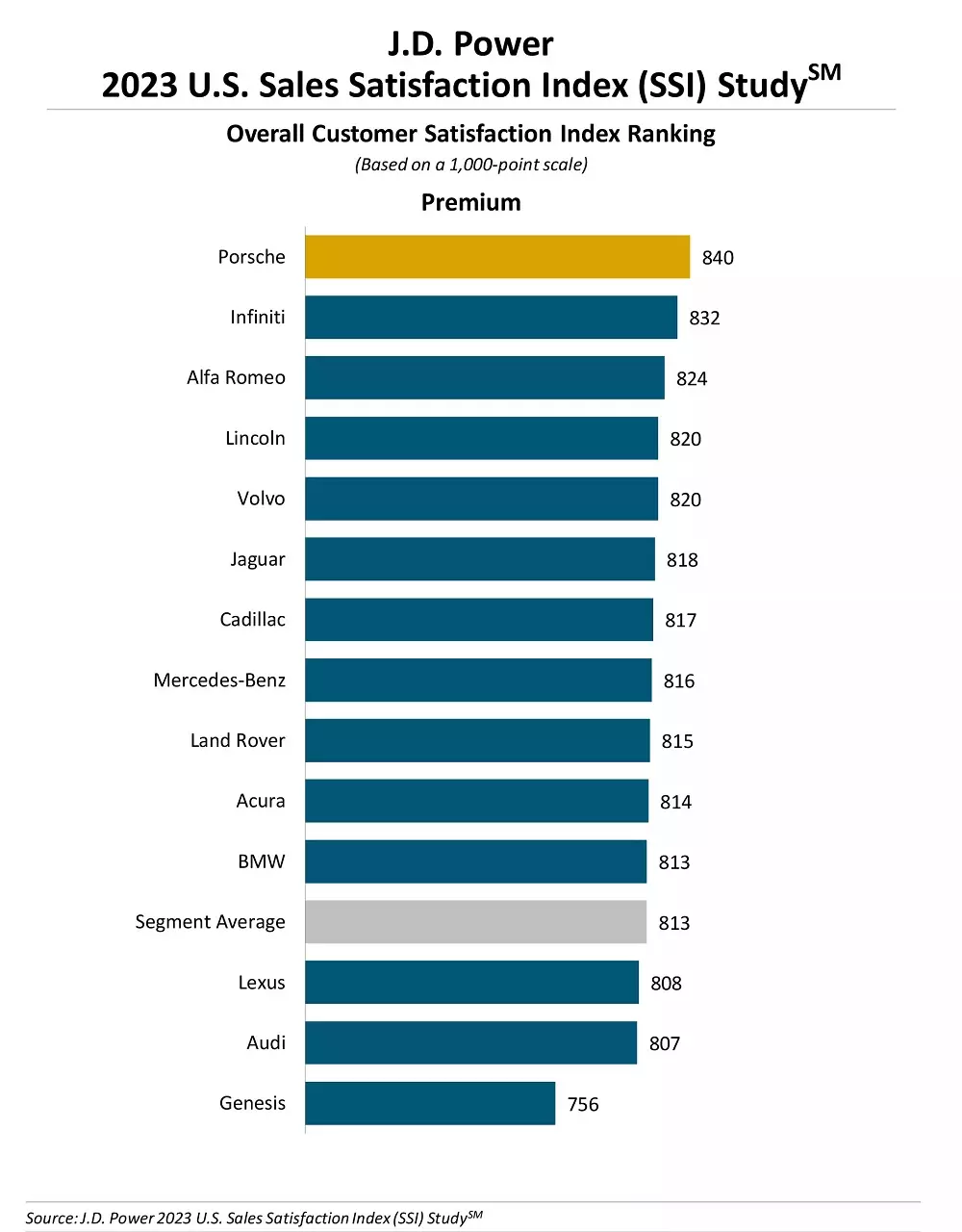
Customer satisfaction index for luxury car brands
In addition, Porsche is also the brand that brings the most satisfaction to customers when buying compact cars and luxury SUVs. On the other hand, Chevrolet brings the highest customer satisfaction for compact cars. In the SUV, minivan, and compact truck segments, GMC is the brand that brings the highest customer satisfaction.
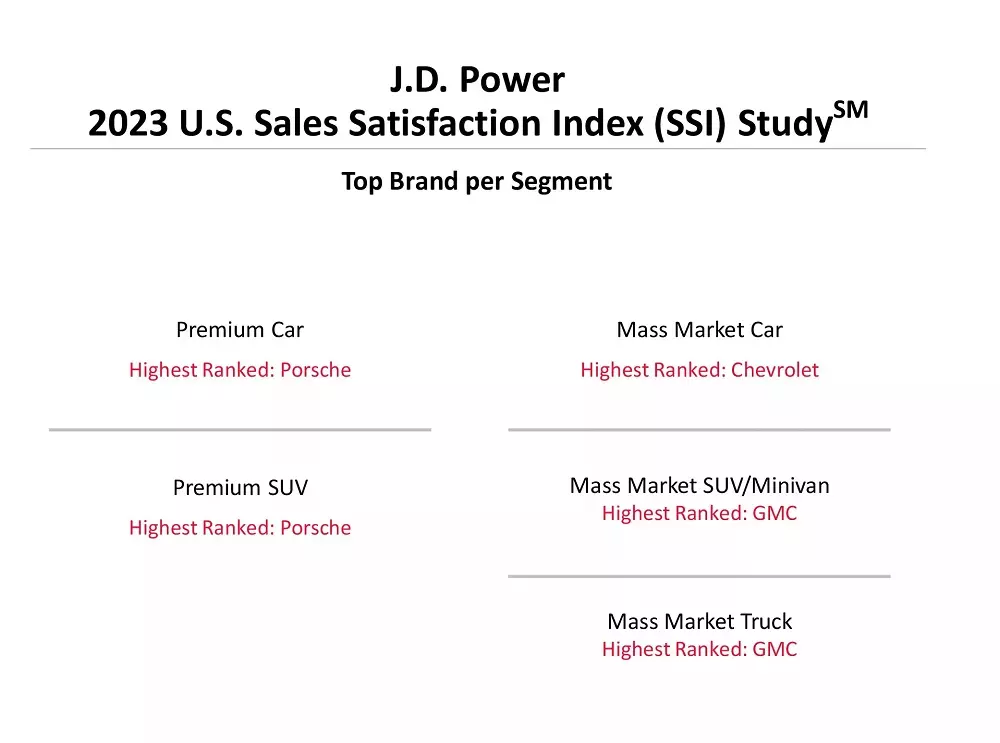
Top customer satisfaction brands in major car segments
According to J.D. Power’s research, customers who buy internal combustion engine vehicles tend to be more satisfied than those who buy electric vehicles. In the luxury car segment, the average customer satisfaction index for customers who buy gasoline and diesel vehicles is 866, compared to 831 for electric vehicle buyers. In the mainstream car segment, the average customer satisfaction index for customers who buy gasoline and diesel vehicles is 848, compared to 790 for electric vehicle buyers.
In addition to higher prices, electric vehicles also tend to disappoint customers in terms of the purchasing experience. Electric vehicles often come with more new technologies, which means that dealership staff still need to learn more while customers need more support in terms of installing charging systems, understanding how to charge, and understanding maintenance schedules specific to this type of vehicle.






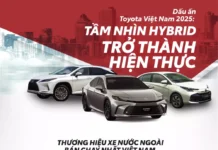





















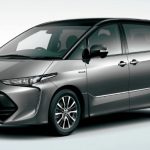
![[Quick Review] Hyundai IONIQ 5 – A Vehicle from the Future](https://vnauto.net/wp-content/uploads/2023/10/xehay-hyundaiioniq5-18052022-2-150x150.jpg)

